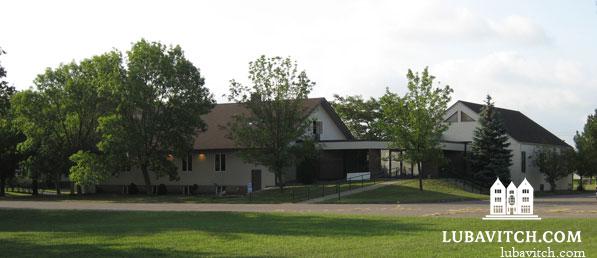(lubavitch.com) Today’s financial climate earns foreclosures scant notice. But with a thriving yeshiva in middle America facing that prospect, the response is coming in fast and furious.
Since 2006, Yeshiva High School of the Twin Cities, Minnesota, has targeted students who want to succeed in a yeshiva setting, but prefer a smaller, more intimate environment than the typically large traditional yeshivas. The 10,00- square foot school building, also known as MyYeshiva, sits on three acres in Cottage Grove, just south of St. Paul. Its fresh air and football fields, say students and teachers, provides a perfect setting for study. But the school is now heavily in debt, facing foreclosure unless it raises $620,000 by February 1st.
Until now, MyYeshiva, was privately mortgaged by the property’s previous owner, a Baptist church. Financial constraints forced the church to rescind its mortgage, which means that the school must pay the remaining debt or lose its home.
That is not an option, says the administration. And, it appears, the neighbors agree.
On Wednesday, the St. Paul Pioneer Press ran a front-page article on the school’s struggle to finance the building. Within hours, reporters from Minneapolis’ Star Tribune, local television stations, and CNN contacted the yeshiva. All have visited the campus and run stories on the yeshiva and its current crisis.
In the two days since the story aired, phone calls and visits from across the state and the wider U.S. have poured in. A local resident is organizing a fundraiser; someone from Montana phoned in his endorsement and a donation; cards with checks enclosed have been slipped through the front door; on Thursday, a neighbor walked in with a $2,500 check. “I read the paper. What you’re doing here for the boys is important for them and our community,” he told his stunned recipients. “G-d’s work is G-d’s work.”
None of these donors is Jewish. All feel a strong connection to the school’s mission.
“It is not a big deal for the rabbis or students to talk about the importance of our work,” states director Rabbi Moshe Weiss. “But for major media and strangers to recognize it, that’s enormous.”
The school is unique in that it offers 40 students a traditional yeshiva education complemented by a comprehensive secular curriculum. Unlike other yeshiva high schools, students earn a nationally-accredited high school diploma upon completion of the program. “Our goal is for the students to be happy here; happy with who they are and happy with what they are doing. Only then can they be productive,” says the yeshiva’s dean, Rabbi Mottel Friedman.
“The rabbis and teachers listen to your problems and help you solve them,” says student Sholom Meyer, 16. The Torontonian is in his first year at MyYeshiva, where he is “accomplishing more than possible” in his previous school. Here, he says, “the learning is great and the environment is great, but it is not uptight.”
It is the rare school that purchases clothes for students who cannot otherwise afford them. Few directors take needy students shopping for new suits or glasses, but Weiss points out that the school is not only about “meeting educational needs, but physical and emotional ones as well.” A strong emphasis is placed on the extra-curricular: students swim and play ice hockey twice weekly; skiing and incentive trips are typical.
Clearly this is a yeshiva worth saving.
Until this year, the students’ $20,000 tuition represented 50 percent of the school’s budget. That source of income is down 30 percent, with no parents paying full fees. Despite a recent matching donations fundraiser that netted $16,000 and a raffle that raised an additional $20,000, the school is scrambling to meet the new demands.
Weiss is eager to explain his plan for the school’s survival. A bank has agreed to provide a mortgage upon receipt of a $125,000 down payment and pledges from 25 monthly donors. The first installment is almost raised and 10 donors have been found. That leaves another 15 to be found.
“If a kid needs to be here,” says Weiss, “we will do whatever it takes.”

Be the first to write a comment.